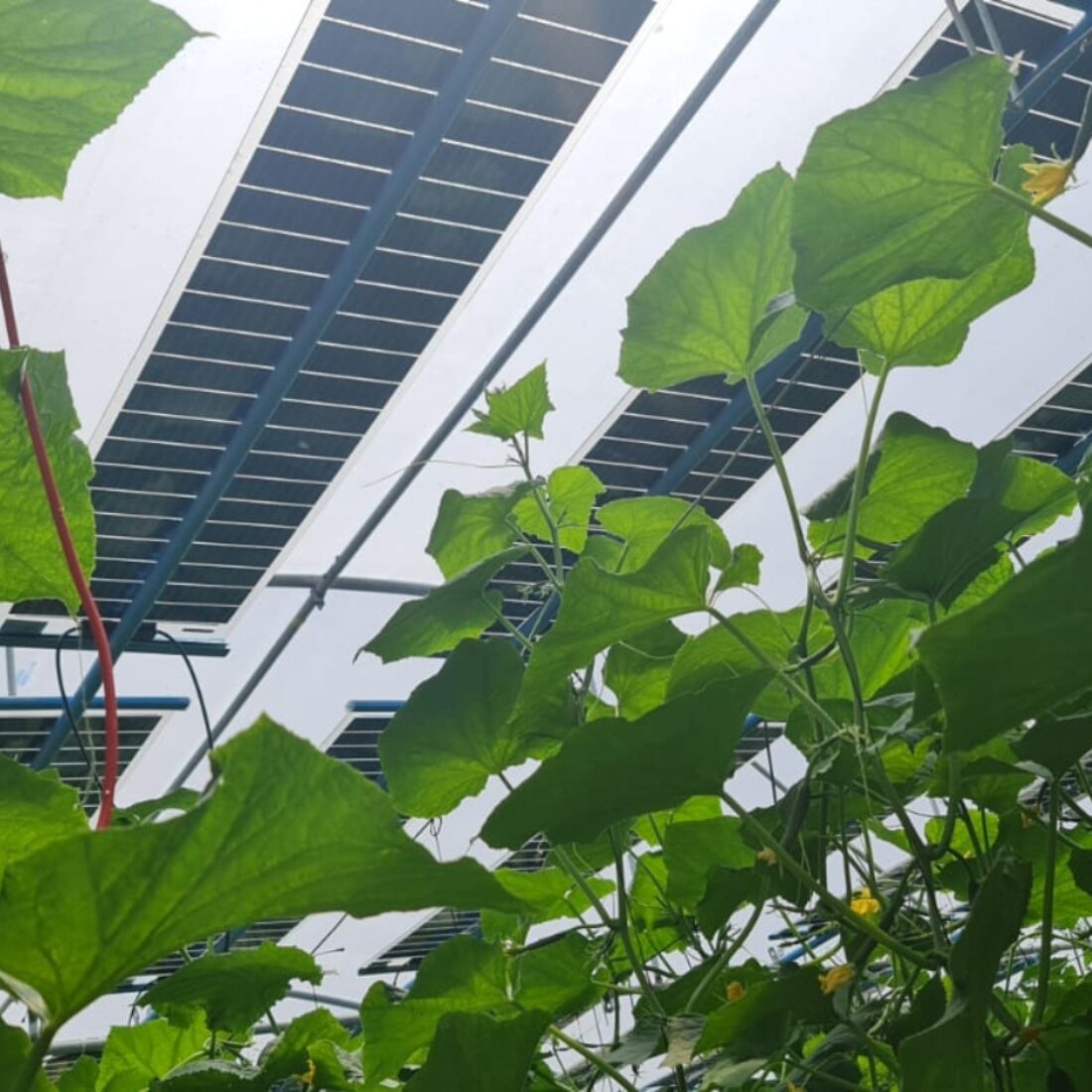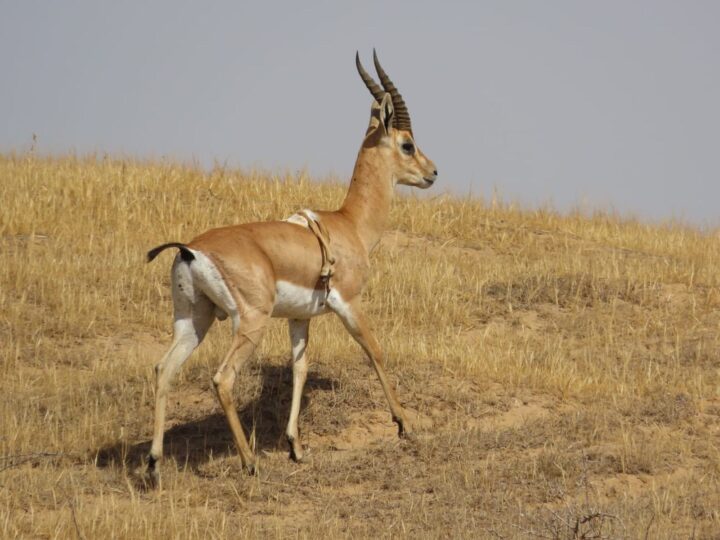Think of agriculture in Israel, and your mind will probably wander to oranges, dates, drip irrigation and the ubiquitous cherry tomato.
And if you’ve traveled to the country’s south in recent years, you’ll also be reminded of the endless rows of shiny solar panels planted where fruit and vegetables once grew.
But does it have to be this or that? Does the production of solar energy need to come at the cost, or indeed in the place of, food production and food security?
Not if TriSolar, a brand-new Israeli startup, has its way.
Based in the Israeli Arab town of Kafr Qara and officially launched in 2022, TriSolar is a pioneer in the emerging field of agrivoltaics, which sees the same piece of land enjoying the very same sunlight for dual purposes – once for agriculture and once for energy — without compromising one or the other.
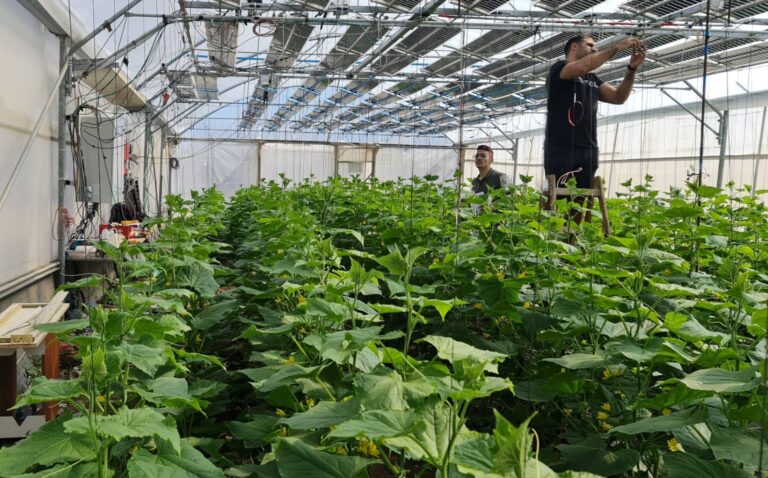
Into the greenhouse
Nowadays, explains TriSolar CEO Ronen Katz, it’s common to see solar panels being installed on top of greenhouses or in place of vegetation in open fields.
Both options, he notes, require costly and extensive infrastructure, and are not plant friendly.
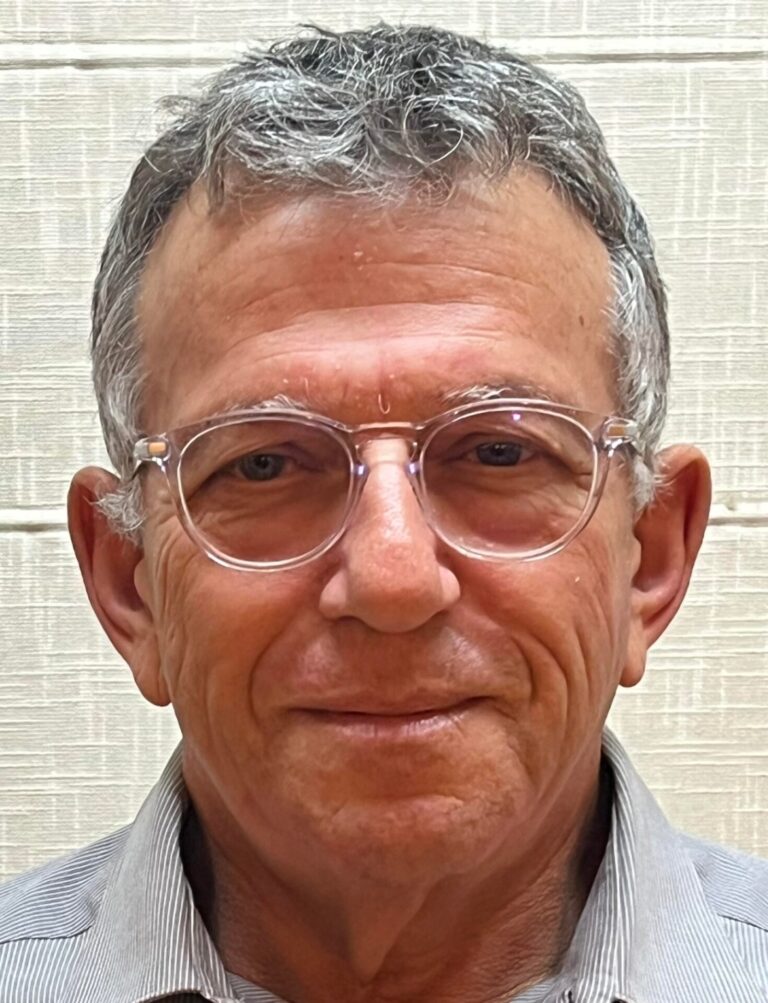
In greenhouses, the solar panels often shade the plants from the sunlight they require, while in open terrain they replace plants and can contribute to the desertification of large areas.
To bypass these issues, TriSolar’s solution goes into the greenhouse itself, cutting down installation costs and carbon footprint by utilizing the existing infrastructure and producing cheap power.
“We found that the nylon sheets that cover the greenhouses diffuse the sunlight inside the greenhouse. This diffusion creates a situation in which the solar panel can receive the rays that create electricity from all kinds of directions.”
TriSolar’s software solution, tilting panels and sensors register and utilize the light reflection from different sources, enabling the greenhouse to reach optimum conditions both in terms of energy and crops.
“We don’t just track the sun, we also control the amount of light that gets into the greenhouse so we can make optimization between the crops’ needs and the amounts of energy that we want to produce,” Katz says.
‘An environmental freak’
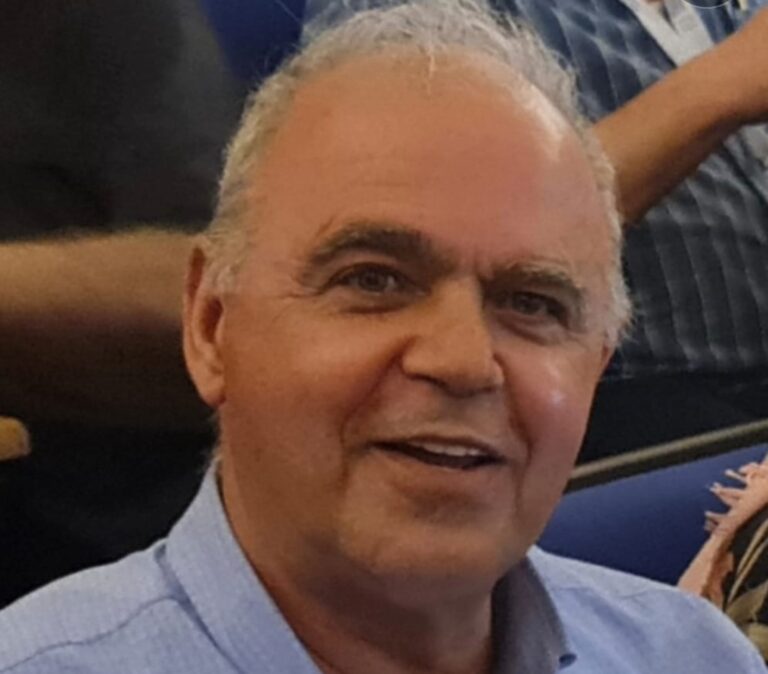
The research behind TriSolar’s solution stems from the company’s founder and chief scientist, semiconductor physicist Ibrahim Yehia.
He began working on agrivoltaics over a decade ago, long before it became recognized as a solution to solar energy production issues.
“I’m probably an environmental freak. I studied in Germany and joined the Green Party. I was interested in environmental issues,” Yehia recalls.
Upon his return to Israel, he tried to infect others with his passion, but it wasn’t easy, he admits.
Yehia began researching agrivoltaics back in 2009 for the Kafr Qara-based Triangle R&D Center, from which TriSolar has recently spun off.
Now, his research is hitting multiple birds with one stone: producing solar energy, saving energy with its advanced panel-tilting technology and creating the ideal light, humidity and temperature conditions for the crops.
Reliable, bankable
The TRDC research, supported by the Israel Innovation Authority and the European Union’s Horizon Europe funding program, led TriSolar to its current pilot projects with partners in Europe. Another big pilot project is in the pipeline here in Israel.
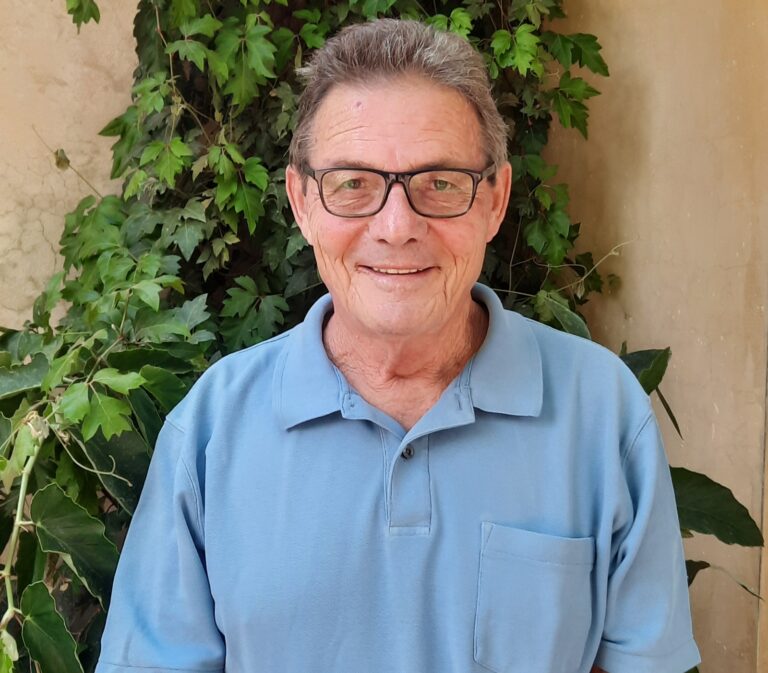
The end customer of the TriSolar system is the farmer, explains Michael Eilan, the company’s business development manager. A reliable income from electricity production can supplement the unreliable income from agriculture.
“You’ve got something that is reliable but is also bankable. Banks love to support solar energy ventures. This changes the profile of the farmer who now has a steady income and provides them with leverage,” Eilan tells ISRAEL21c.
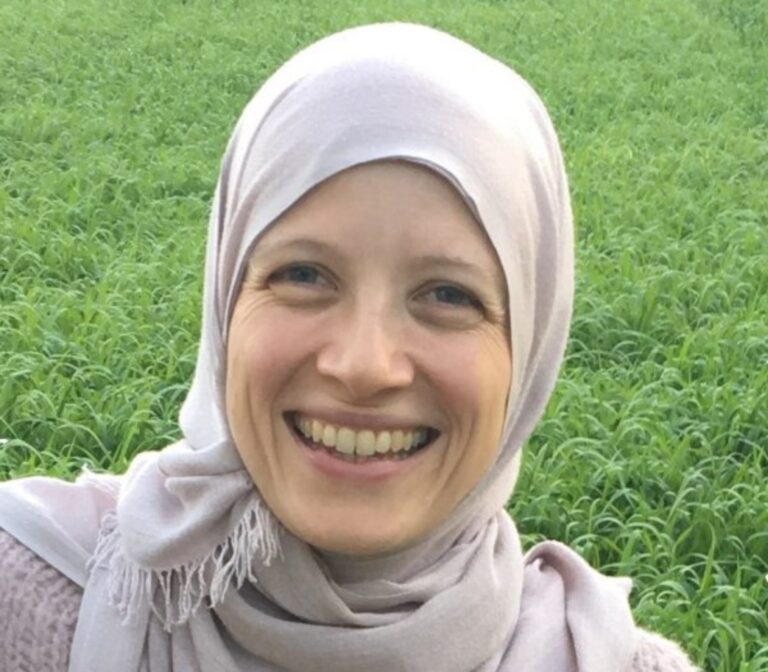
“They could also use the electricity on the farm, which sometimes makes sense,” adds Esther Magadley, TriSolar’s CTO, who is in charge of photovoltaic research.
For example, farms use the homemade electricity to cool or heat the greenhouses or to power the cooling houses that store the products before they are shipped off to supermarkets.
The pilot projects, Eilan notes, give farmers living proof of concept.
“Each pilot project is a showcase,” notes Eilan. “We saw that farmers do not buy on paper. Ibrahim hosted farmers from the Emek Hefer region. They came, they looked at the system, they looked at the plants, they tasted the vegetables. They buy when they see.”
Madly ambitious
Looking forward, TriSolar has both global and local goals.
“We are madly ambitious. We want to be the top company in greenhouse agrivoltaics in the world,” notes Eilan. “We’re committed to do something serious, to contribute something to the world. At the same time, we want to build a big and successful business, of course.”
On a local level, CEO Katz hopes that the company can make a social impact on the Israeli tech ecosystem due to its bicultural nature.
“If we’re going to succeed, we can be a leading company for collaboration between Arab and Israeli startups. If we can do this, maybe others can do it and it can bring change.”
For more information, click here.




